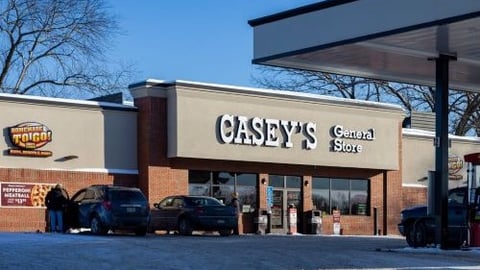THE FRIDAY 5: ALDI Needs Suppliers' Help; Amazon's Operational Kinks
Welcome to The Friday 5, Progressive Grocer’s weekly roundup of the top news and trends in the food retail industry. Each Friday, we’ll take a look at the stories that are most important to our readers and also keep tabs on the trends that are poised to impact grocers.
1. ALDI Lowers Prices, Gives Advice to Suppliers
News from ALDI grabbed readers’ attention this week, with the retailer planning to pass along $100 million in savings through Labor Day by dropping prices on more than 250 already discounted items. The price drop will nearly double savings from last year, building on the retailer's announcement last May that it was reducing prices on products to save shoppers more than $60 million.
This is another example of ALDI doubling down on its value proposition for shoppers. Last month, the discount retailer spoofed other grocers’ paid membership programs, pointing out that shoppers don’t need to be in a club to enjoy its deals.
Meanwhile, ALDI held an inaugural supplier summit online May 6, and its leaders emphasized the importance of keeping products on the shelf that mirror its mission of providing high-quality products to shoppers at low prices.
Among other goals, the summit was intended to help suppliers understand the parallel business growth they can achieve as ALDI widens its footprint and to ensure that products are available and priced properly in a market that promises to remain remarkably competitive. “We need your help,” said CEO Jason Hart. “It’s our goal to be America’s first stop for grocery shopping, which means we want your products to be the ones they bring home.”
2. Giant Eagle Adds a New Bag Option
Midwest retailer Giant Eagle made waves this week with its latest sustainability initiative – offering a washable, reusable fabric bag option that can withstand bulkier groceries but not wind up in a landfill or recycling bin. This month, the retailer will begin offering the new bags at Giant Eagle and Market District stores in Cuyahoga County in northeast Ohio.
The fabric bags – which look like standard paper bags – are also available at stores in Maryland, Indiana and in parts of Pennsylvania and will roll out in central Ohio locations over the summer.
“After hearing feedback from our customers that they were interested in a bag option that would help them more effectively transport heavier items, we sourced a new fully washable reusable fabric bag option for our stores. Once the new bags are in circulation, we encourage our customers to incorporate the fabric bags into their reusable bag collection and to utilize reusable shopping bags whenever they shop with us,” spokesperson Jannah Jablonowski told Progressive Grocer.
3. Amazon, Grocery Outlet Work Out Operational Kinks
Amazon is planning to cease operations for its 38,500-square-foot grocery fulfillment center in San Francisco’s Dogpatch area on June 27, as reported this week. As it closes one facility, the e-commerce giant is looking to build a 650,000-square-foot logistics center in San Francisco’s Showplace Square neighborhood, which is being vetted by city planners.
“We’re always evaluating our network to make sure it fits our business needs and to improve the experience for our employees, customers, partners and drivers,” a representative said in a statement to the San Francisco Chronicle. “As part of that effort, we may close older sites, enhance existing facilities or open new sites, and we weigh a variety of factors when deciding where to develop future sites or maintain a presence.”
In other news, Grocery Outlet’s sales momentum remained strong during its first quarter ended March 30, but its 29.3% gross margin was 110 basis points below expectations. President and CEO RJ Sheedy explained during the company’s Q1 earnings call that its low first-quarter margins were the result of both expected and unexpected impacts from its systems transition.
“Our results were incrementally impacted by unforeseen systems transition costs that surfaced at the end of the quarter,” Sheedy said. “We are all very disappointed with our poor Q1 results, and we are committed to getting these system impacts behind us very soon.”
4. Where Is Retail Media Headed?
Retail media has seen a massive shift in recent years from being a buzzword to a must-have for every food retailer in the industry. With expected market growth of 12% annually to an estimated share of about $140 billion in 2026, according to Bain & Co., retail media will pick up share from other digital advertising channels and likely surpass television as a go-to form of advertising in the process.
A necessary evolution is happening in retail media as it picks up steam, with issues such as customer data, artificial intelligence (AI), interconnectivity, governance and transparency being more widely discussed and more closely scrutinized. What should retailers be paying attention to when considering the future of retail media? Several industry experts talked to PG to answer that question.
5. Thrive Market Settles Subscription Lawsuit
Thrive Market has settled a class action lawsuit for $1.55 million in California. The online-only grocer agreed to pay civil penalties, restitution and court costs in a case stemming from allegations of false advertising and the automatic renewal of subscriptions.
Los Angeles County, which took part in the lawsuit along with other local counties and cities, announced the settlement on May 3. “This case highlights a flagrant violation of consumer rights and ethical business practices,” declared L.A. District Attorney George Gascón. “Automatic renewal without explicit consent undermines the fundamental principle of transparency and fairness in consumer transactions. As guardians of justice and defenders of the public interest, it’s imperative that we hold accountable those who engage in such deceptive practices.”
In the filing, plaintiffs contended that Thrive Market violated parts of California’s Automatic Renewal Law and False Advertising Law, which require companies to clearly disclose terms and getting the consumers’ consent for subscription. The company, which denied any wrongdoing, has since updated its platform to clarify and communicate policies.







